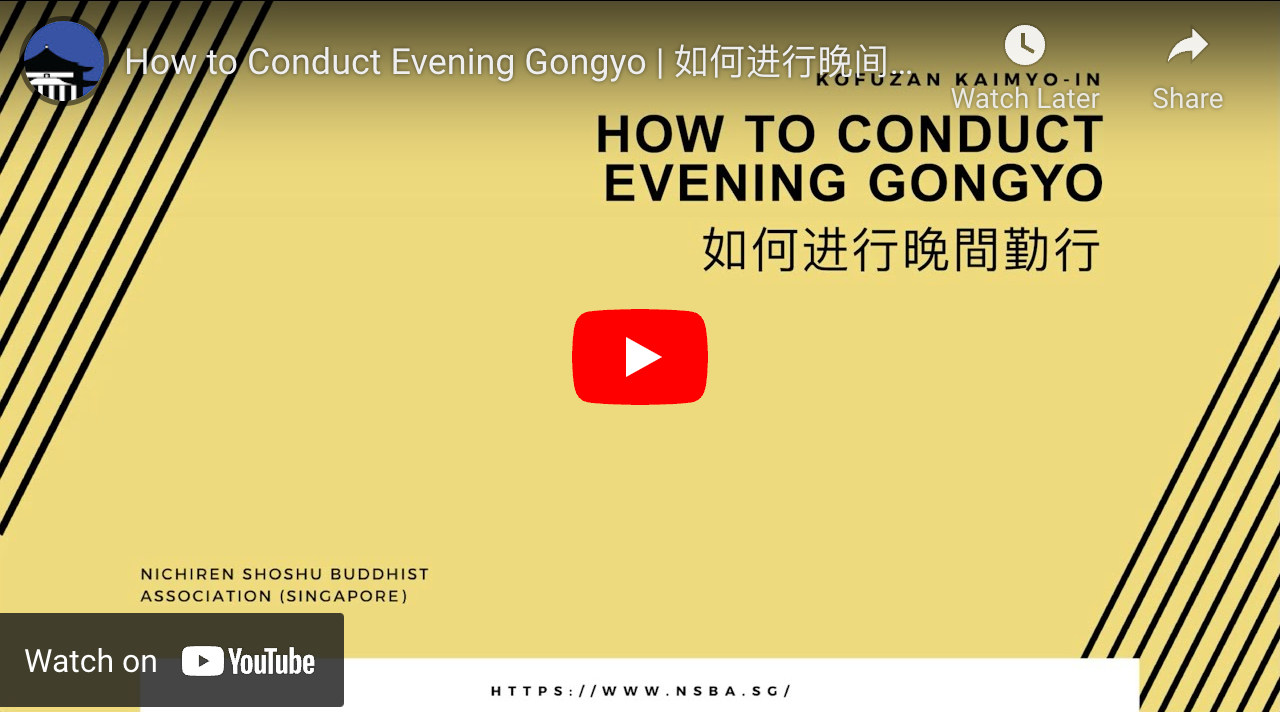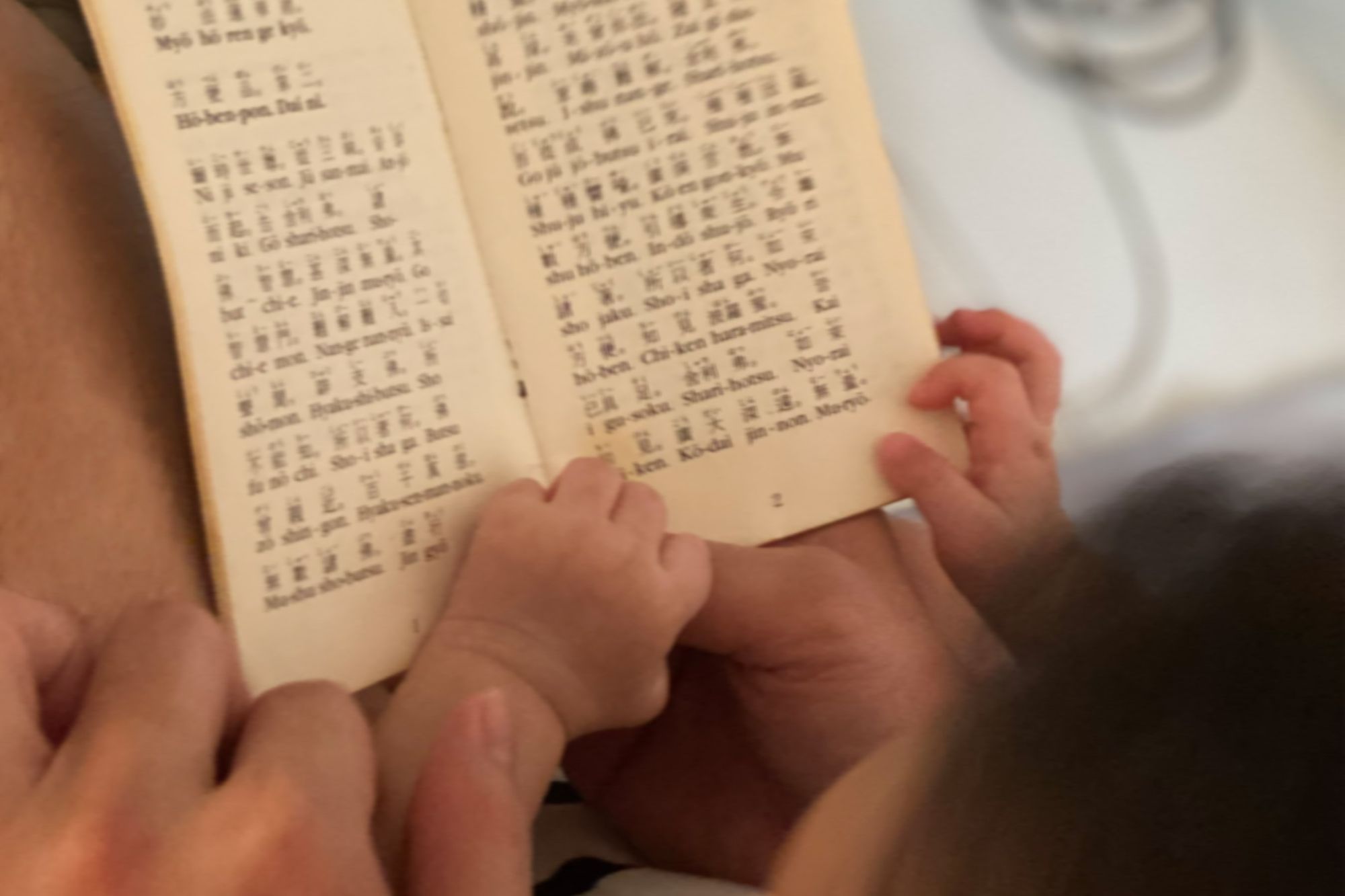How to Conduct Morning and Evening Gongyo
What you can expect in this video series:
- Two kinds of setup for Nichiren Shoshu Altar (Butsudan) -
Three type accessories (Mitsugusoku) | 三具足
Five-type accessories (Gogusoku) | 五具足 - Conducting Daily Morning and Evening Gongyo
- How to Conduct Morning Gongyo

- How to Conduct Evening Gongyo

The Significance of Performing Gongyo
Every believer wants to have their life changed for the better and to receive benefits from the Gohonzon, so they receive Gojukai and embrace the Gohonzon. But if after they have received Gojukai and embraced the Gohonzon, they just do nothing but wait for benefits to come, the benefits will not manifest themselves. This is the reason why one has to chant Daimoku and perform Gongyo.
The basic Gongyo practice in Nichiren Shoshu is to perform the five prayers in the morning and the three prayers in the evening. Gongyo is an easy or a difficult practice. It is easy because you can do it alone. It is difficult because unless you have the determination, you will not do it regularly.
Nichiren Daishonin stated in the Gosho “A Comparison of the Lotus Sutra and Other Sutras” that:
“Buddhism is like the body and society like the shadow. When the body is crooked, so is the shadow”.
When you do your Gongyo correctly, you will have a stable life and benefits will appear in your daily life. If you don’t do Gongyo or perform Gongyo haphazardly, you will find that your life condition will be unstable. Gongyo is a driving force towards enlightenment. The daily Gongyo you perform can purify your life and eradicate the evil karma created through your body and mind; consequently, your six sensory organs are purified.
The spirit of doing Gongyo is to repay the four debts of gratitude. They are:
1. Debts of gratitude we owe to all living beings.
2. Debts of gratitude we owe to one’s father and mother.
3. Debts of gratitude we owe to one’s sovereign.
4. Debts of gratitude we owe to the Three Treasures.
As Nichiren Daishonin wrote in the Gosho “ Conversation between a Sage and an Unenlightened Man”:
“Ever since I began to study the Law handed down from Shakyamuni Buddha and undertook the practice of the Buddhist teaching, I have believed it is most important to understand one’s obligations to others and made it my first duty to repay such debts of kindness. In this world, we owe four debts of gratitude. One who understands this is worthy to be called human, while one who does not is no more than a beast.”
The people in the present society can be very selfish and arrogant - they think that their success is due to their own efforts, and don’t appreciate other people. People tend to forget the kindness received from others but always remember the kindness they have rendered to others. As taught by Nichiren Daishonin, we must always remember to repay our debts of gratitude because when we do it, our daily behaviour will manifest a heart of mercifulness, and we will gain respect from others. This is why we must perform Gongyo to be able to naturally manifest the sense of repaying the four debts of gratitude.
Source: “The Significance of Performing Gongyo”, Kaimyo Magazine Issue 13, Aug Sep 2004
New to Nichiren Shoshu and interested to join in our ceremonies and daily chanting sessions?
Do reach out to us here so we can assist you directly!


